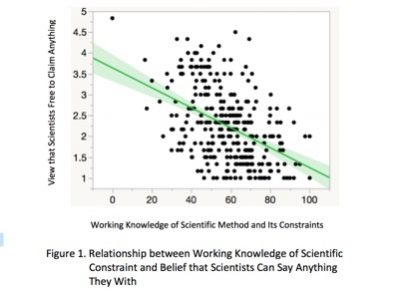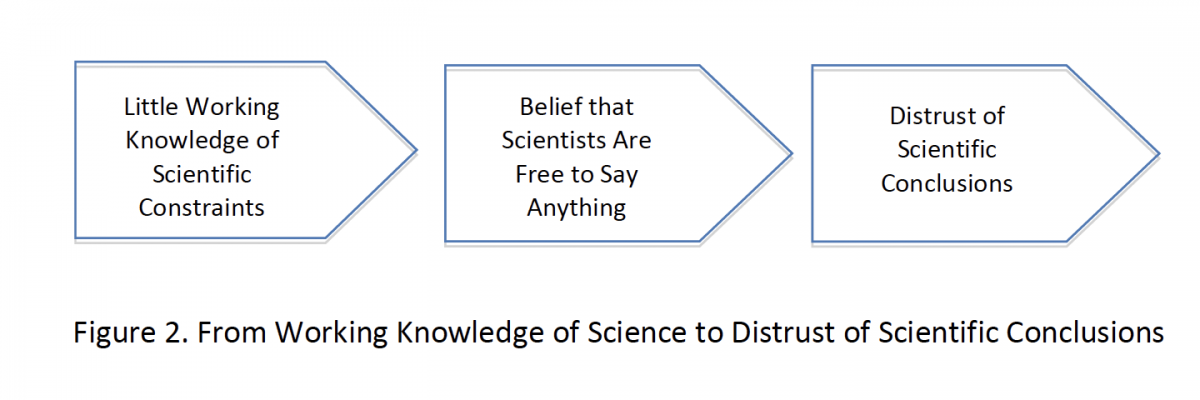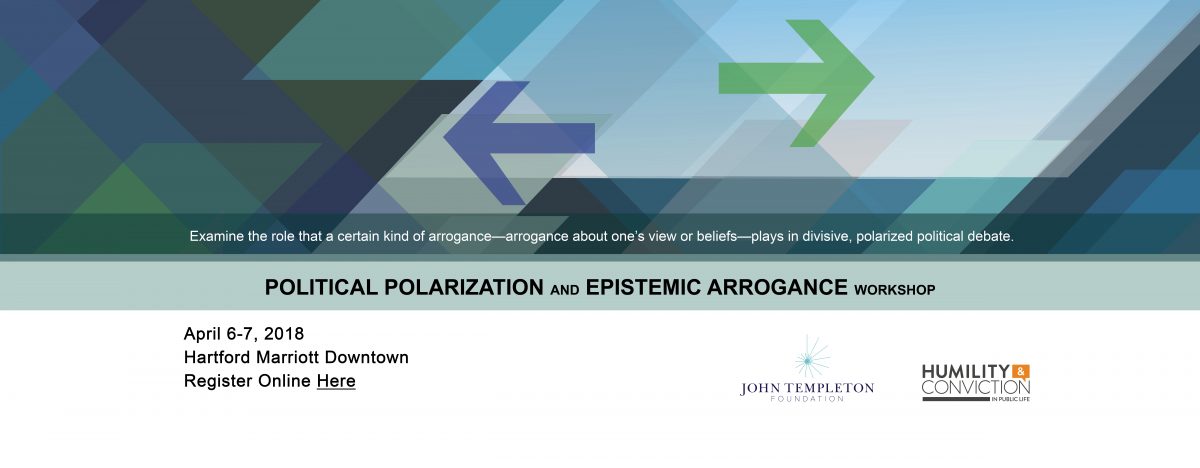Associations Between Religious Convictions and Intellectual Humility
by Liz Mancuso
Most people hold convictions in life. Convictions, by definition, involve firmly held beliefs that are often associated with behavioral commitments. My recent work has focused on how convictions and associated commitments relate to intellectual humility. Intellectual humility can be defined as a nonthreatening awareness of one’s intellectual fallibility (Krumrei-Mancuso & Rouse, 2016). This definition assumes the intellectually humble person understands that his or her cognitive faculties are not perfect and that his or her knowledge, perceptions, and beliefs are therefore sometimes incorrect. This is paired with an attitude of acceptance, whereby the person does not feel defensive about his or her mental fallibility.
It is most fitting to study intellectual humility in the context of convictions that are of greatest importance to people. This makes religious convictions a particularly relevant domain, because they offer so much in the way of finding meaning, coping with life’s struggles, terror management, and so forth. My research has been examining whether it is possible to be intellectually humble and simultaneously deeply committed to religious beliefs.
Some may assume intellectual humility to be incompatible with firm commitments. Yet, research has indicated that intellectual humility is unrelated to conformity, social confidence, or low self-regard, and has small, positive links to self-confidence (Krumrei-Mancuso & Rouse, 2016). This suggests that intellectual humility is not associated with modifying beliefs on the basis of social influence or to fit others’ standards and suggest that intellectual humility, therefore, may co-occur with convictions. Yet, this has rarely been examined with regard to specific convictions, such as religious beliefs and commitments.
This line of research has resulted in two particularly interesting findings so far. First, in addition to the emergence of small negative linear relationships between religious variables and intellectual humility, curvilinear relationships are emerging as well (Krumrei-Mancuso, 2018). For example, in the case of religious belief salience, prayer fulfillment, and religious fundamentalism, U-shaped links are suggesting that extreme scores at low and high levels of these religious variables tend to be associated with higher levels of intellectual humility compared to moderate levels of these religious variables. A possible explanation for this finding is that those with moderate levels of religion may be masking their ambivalence about their worldview with a façade of overconfidence that presents as a lack of intellectual humility. Alternatively, these findings could reflect a developmental faith trend, whereby individuals who move from no or very low faith to more substantial levels of faith may initially be encumbered by a more closed-minded approach, whereas those who continue to progress still further into more mature faith move toward greater intellectual humility as they shift away from black and white thinking, gain more appreciation for paradox and mystery, and experience greater acceptance of others (Fowler, 1981). Notably, a number of previous studies have found conceptually similar curvilinear relationships with religious variables and other outcomes such as prejudice toward outgroup members (Batson, Schoenrade, & Ventis, 1993; Gorsuch & Aleshire, 1974) and mental wellbeing (Galen & Kloet, 2011). Taken together, these findings suggest that individuals toward the middle of the continuum of religion may fare the least well on a variety of outcomes, including intellectual humility.
Second, and perhaps more important, is the finding that the links between religious variables and intellectual humility can be almost fully accounted for by right-wing authoritarianism (Krumrei-Mancuso, 2018). This holds in both cross-sectional and longitudinal analyses. Although religious participation, religious belief salience, prayer fulfillment, and religious fundamentalism initially seem to be associated with slightly less intellectual humility, controlling right-wing authoritarianism erases all of these links except for a small association between religious participation and less intellectual humility.
Right-wing authoritarianism is characterized by obedience to authority, conformity to conventional norms, and intolerance of deviance. Previous research has emphasized that right-wing authoritarianism and certain forms of religiosity can promote one another through a mutual emphasis on obedience to authority, conventionalism, and perhaps even feelings of self-righteousness or superiority (Hunsburger, 1995). Yet, right-wing authoritarianism is not religious in nature. The suggestion of the current research is that, for the most part, it is not religious conviction itself that is associated with decreases in intellectual humility, but rather, that sociopolitical attitudes about authority, conformity, and conventionality are associated with less intellectual humility. This parallels a theme in previous research about the links between religion and prejudice, as well (Hunsberger, 1995).
Thus, the emerging picture is that intellectual humility may function independently from many religious beliefs, behaviors, and experiences. It is possible that religious convictions co-occur with openness to improving one’s knowledge and beliefs. Although further research is needed, it seems that intellectual humility, involving an appreciation for the tentative nature of one’s personal knowledge, need not conflict with religious conviction.
References
Batson, C. D., Schoenrade, P., & Ventis, W. L. (1993). Religion and the individual: A social-psychological perspective. New York, NY: Oxford University Press.
Fowler, J. W. (1981). Stages of faith: The psychology of human development and the
quest for meaning. San Francisco: Harper & Row.
Galen, L. W., & Kloet, J. D. (2011). Mental well-being in the religious and the non-religious:
evidence for a curvilinear relationship. Mental Health, Religion & Culture, 14(7), 673
- doi:10.1080/13674676.2010.510829
Gorsuch, R. L., & Aleshire, D. (1974). Christian faith and ethnic prejudice: A review and interpretation of research. Journal for the Scientific Study of Religion, 13(3), 281-307. doi:10.2307/1384759
Hunsburger, B. (1995). Religion and prejudice: The role of religious fundamentalism, quest, and right-wing authoritarianism. Journal of Social Issues, 51(2), 113-129. doi:10.1111/j.1540-4560.1995.tb01326.x
Krumrei-Mancuso, E. J. (2018, in press). Intellectual humility’s links to religion and spirituality and the role of authoritarianism. Personality and Individual Differences, 130C, 65-75.
Krumrei-Mancuso, E. J., & Rouse, S. V. (2016). The development and validation of the Comprehensive Intellectual Humility Scale. Journal of Personality Assessment, 98, 209-221. doi:10.1080/00223891.2015.1068174
 Rachel Wahl
Rachel Wahl Jennifer Saul Professor of Philosophy
Jennifer Saul Professor of Philosophy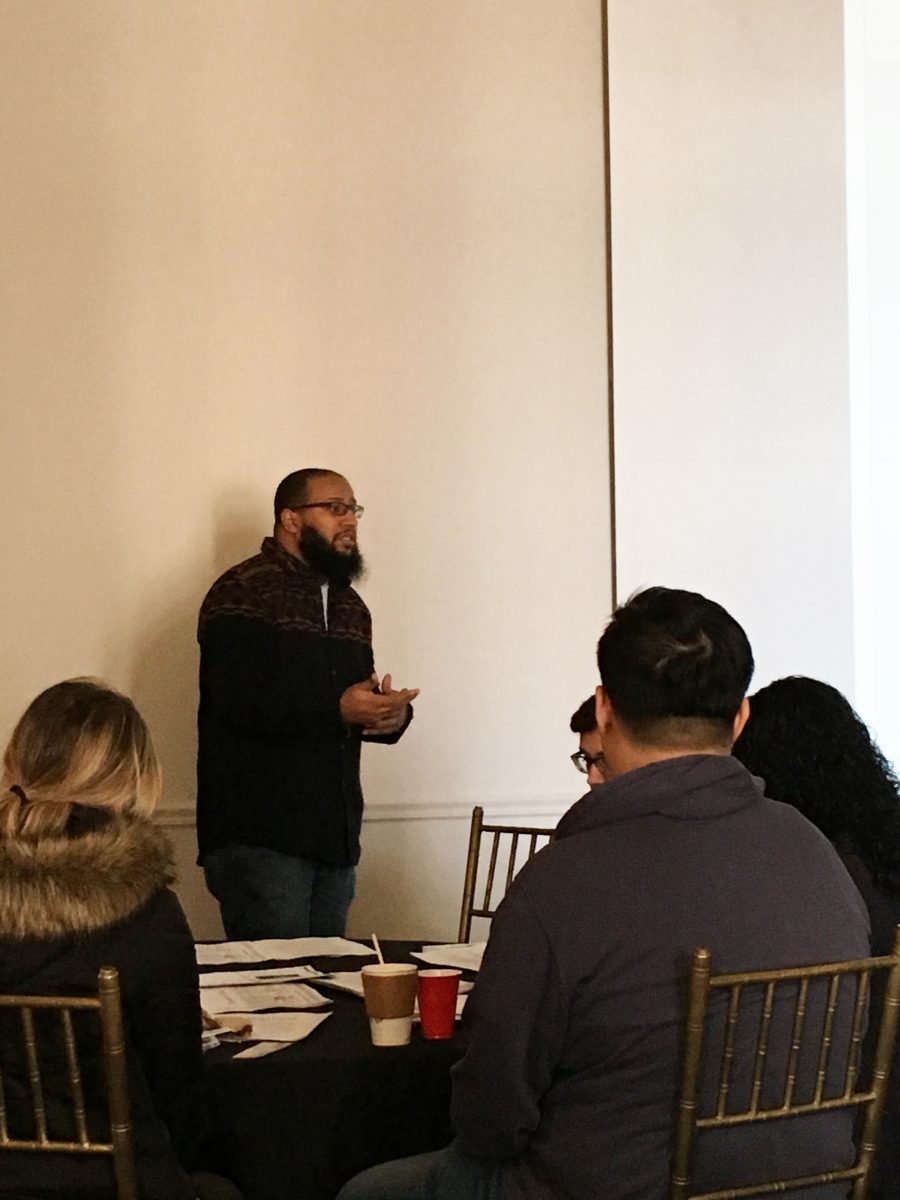
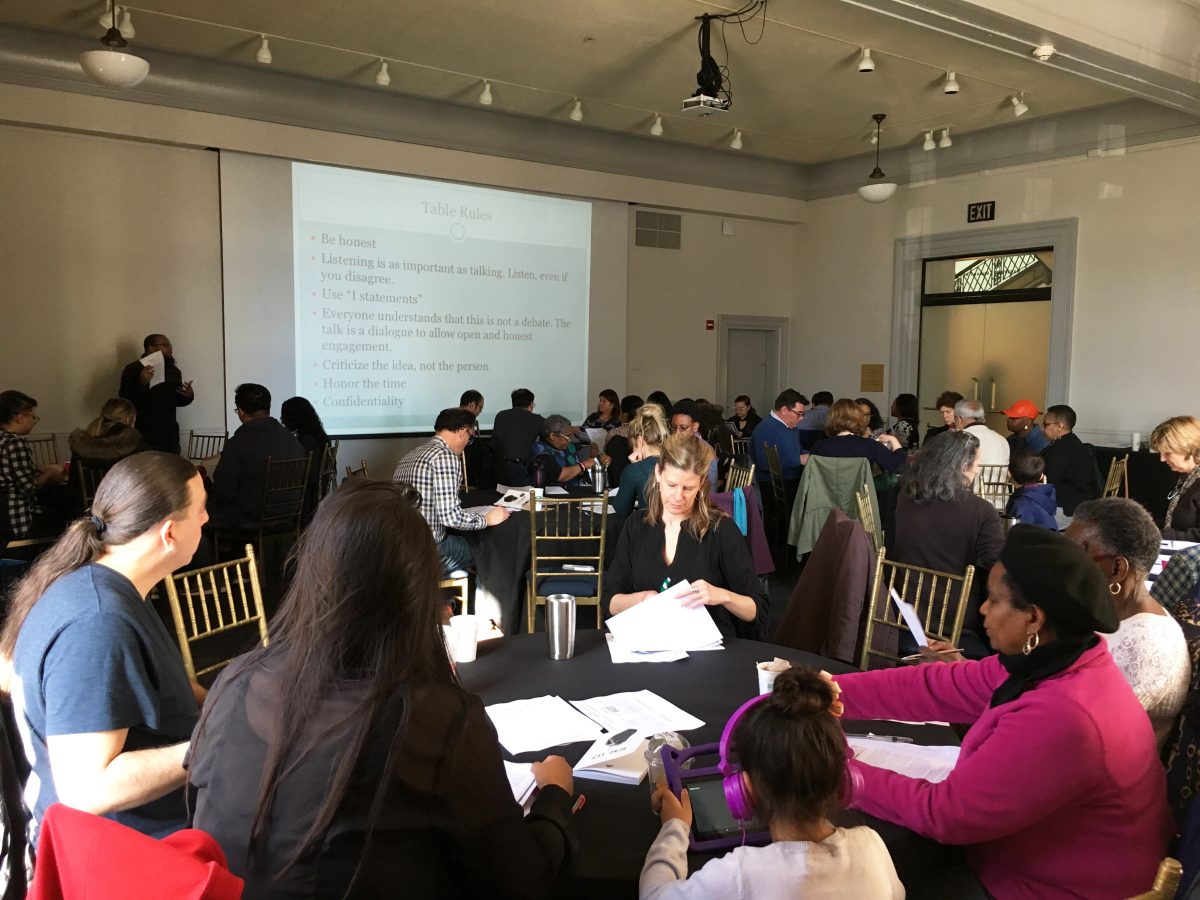
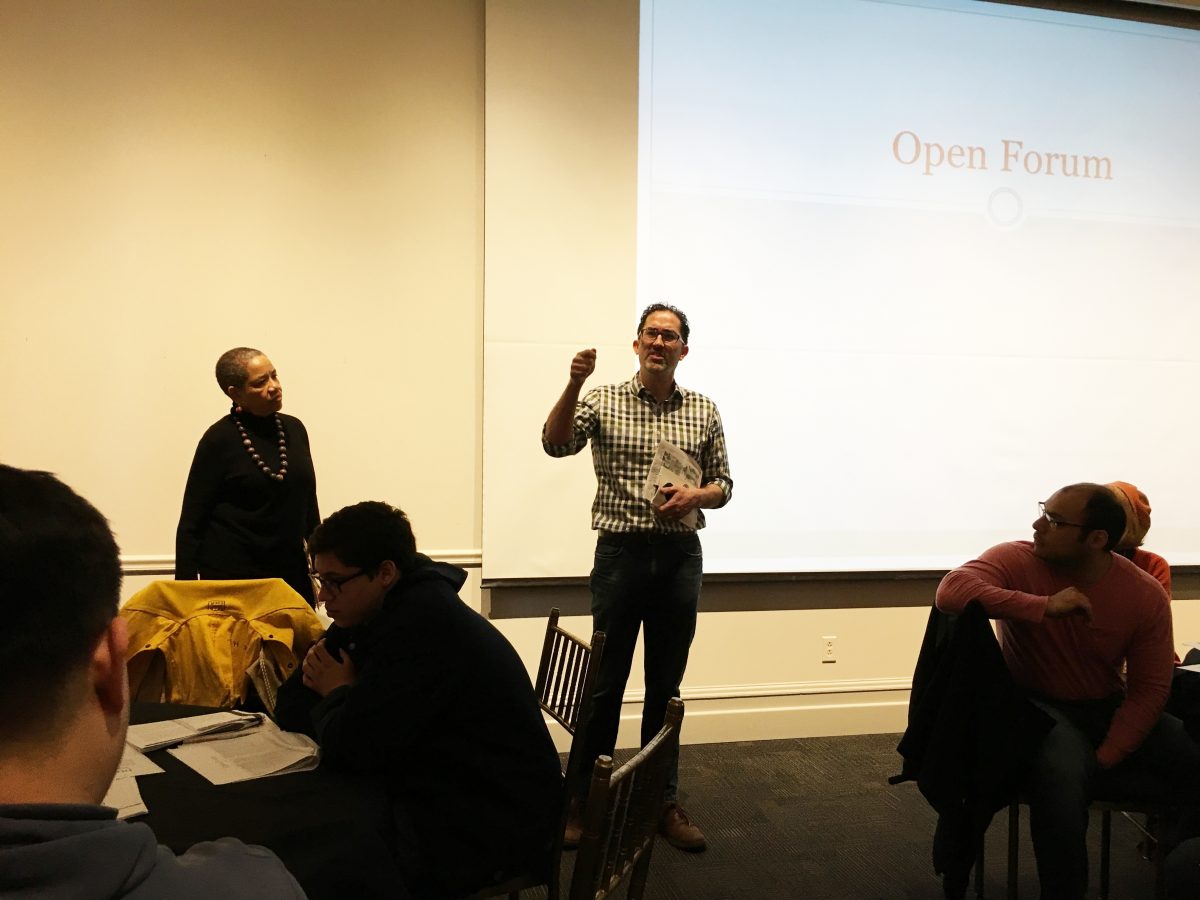
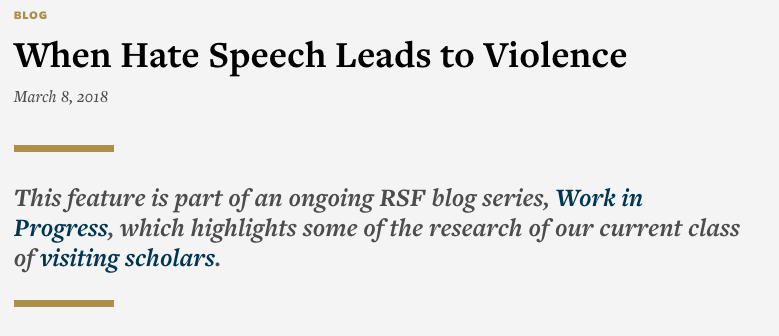
 Sanford Goldberg
Sanford Goldberg 